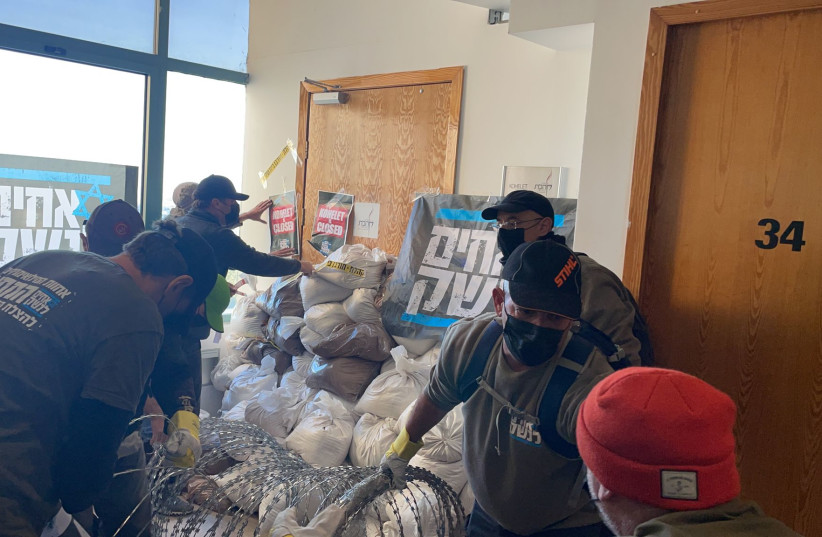Law Prof. Alan Dershowitz said that he could possibly get his friends Prime Minister Benjamin Netanyahu and former High Court of Justice President Aharon Barak to sit at a table to discuss compromise on the judicial reform, in a discussion on J-Air Radio on Wednesday evening.
Dershowitz proposed that they be joined by the Kohelet Policy Forum's Eugene Kontorovich, who was opposite the American professor in the debate on Israel's legal reform.
Reaching a compromise
The reason that Dershowitz expressed positivity is that he felt "if we sat down for a few hours I think that we could come to 80% agreement on the issues."
The reason that compromise had not yet been met is that extremists on both sides of the reform and anti-reform camps were winning. Dershowitz said that the issue was not helped by protests abroad, which he felt were motivated not by concern about the content of reform, but by animus toward the characters that were elected into government.
Derhsowitz also felt that some of the protests in Israel had gone too far, and that military reservists refusing to serve over the reform was a red line. Israel's enemies could capitalize on such weakness.

Kontorovich said that protests were actually a good thing, demonstrating a strong democracy. If there was a genuine military threat, he was confident that Israelis would band together and fulfill their duties.
Kontorovich also expressed that he felt that opposition leader Yair Lapid didn't have enough incentive to negotiate, because his ultimate goal was to return to the position of prime minister. To do so, he would have to topple the government, and the protests and crisis would serve as a suitable vehicle to that political objective.
The one thing that Dershowitz felt that he and Kontorovich would have difficulty compromising on was the judge selection committee.
Dershowitz felt it was more important that a dedicated anti-majoritarian structure was in place to protect minority rights.
"Those in power or majority never like rights like free speech," he noted.
He said that the High Court was the gem of the Israeli system due to its independence and he didn't want it filled with political hacks.
Kontorovich argued that appointments of experts could create a disconnect from the public, and in the past the High Court hadn't adequately protected rights, noting the failures in Israel's conscription laws.
